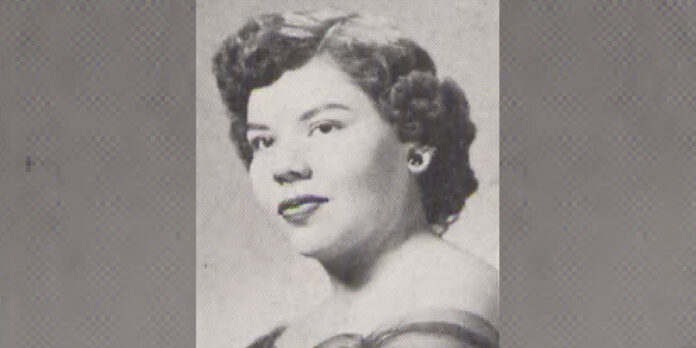
By Piper Rutherford | Staff Writer
Although the nation is wrapping up its celebration of Native American Heritage Month, Margery Lancaster Walker will continue to stand as a trailblazer in the Baylor community. As the university’s first Native American graduate in 1953, Walker’s life and legacy paved the way for future generations.
Walker dedicated her life to elevating Native American culture as an advocate for Native American folk music — and she did so at a time when being a woman of color presented its own set of challenges in the South.
University archivist Dr. Elizabeth Rivera said Walker studied music education while attending Baylor, as influenced by her family’s musical history.
“Although she was given up for adoption at the age of two by her father following the death of her mother in childbirth, Margery carried her parents’ musical talents with her,” Rivera said. “Her dad was a musician from the tribe of Sioux, where he was a baritone singer, and her mother was his accompanist.”
University archivist Dr. Sylvia Hernandez said Walker was heavily involved on campus.
“She was secretary of the Baylor Rodeo Association and was a tennis player in intramurals,” Hernandez said. “Also, since her birth parents were both Baptist missionaries, she was also deeply involved in serving others who were less fortunate because of her Christian spirit, which called her to share her gifts with others.”
Rivera said a testament to Walker’s Christian faith was a 1952 interview with the Lariat, during which she talked about spending her Christmas allowance on clothes for those back on her reservation in Albuquerque who were less fortunate.
“Given the context of her being a college student, that is such a generous act that you do not see too often by someone so young — or anyone, for that matter,” Rivera said.
While the article in the Lariat revealed Walker’s selfless nature, Rivera said it also exposed the challenges she faced, as she was introduced as a “bronze-skinned, brown-eyed” student.
“Margery is so inspiring for all people,” Rivera said. “She was different from everyone around her at the time, since she only cared about helping other human beings, regardless of their race or ethnicity, and was a great example of it herself, being a female minority at Baylor.”
Hernandez, who is also a Baylor graduate, said she understands how a person of color can feel like an outsider on campus.
“While you are not treated differently, sometimes you do have a sense of different as a result of your background and life experiences,” Hernandez said.
Despite these challenges, Rivera said Walker put her aspirations into action after graduation, proceeding to pour her heart into teaching in various Native American school districts across the Southwest for the next 23 years of her life.
“She wanted to elevate the Native people, starting when they were young,” Rivera said. “Margery saw education and the opportunity of learning as an avenue to promote the Native American culture rather than changing it or diminishing it, as seen throughout history.”



